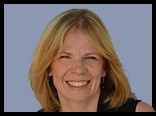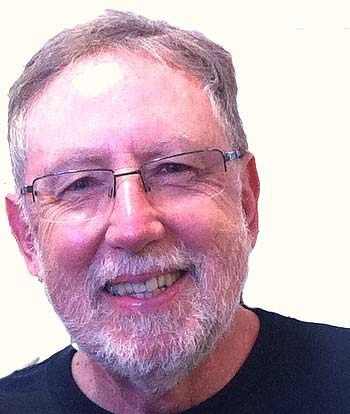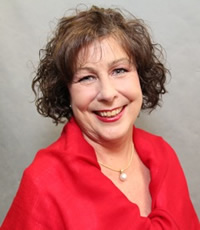Exploring the Freedom of Choice
A Mental Health and Wellbeing
Conference like no other!
The 2022 Glasser Australia Conference will explore the freedom of choice from a range of perspectives. Dr Glasser’s Choice Theory offers the tools needed to move out of a paradigm of fear into a sense of freedom and empowerment. People in communities all over the world are living in unprecedented times since Covid 19 has threatened our very survival.
This Conference will create a space for you to:
* Increase your knowledge and skills to improve your mental health and wellbeing, both personally and professionally.
* Discuss current thinking and trends around mental health and wellbeing, trauma informed and general counselling, quality relationships, quality education and lead management.
* Network with likeminded people.
* Establish and maintain quality relationships.
* Listen to and appreciate differing and/or alternative perspectives.
* And most importantly have fun!
Who should attend:
* Mental Health Professionals
* Community Mental Health Professionals
* Educators
* CEO’s and Managers
* Employees
* Students
* People with lived/living experience of mental distress
* General public
* Parents / Carers
Dates: 29th September – 1st October 2022
Venue: Mantra Twin Towns, Gold Coast, Australia
Keynote Speakers:
Dr. Cathy Kezelman
Keynote: A trauma-informed world: the role of healthy relationships in recovery from complex trauma.

Dr. Cathy Kezelman AM is a medical practitioner, mental health consumer advocate, President and Executive Director of Blue Knot Foundation National Centre of Excellence for Complex Trauma. She is past director of the Mental Health Coordinating Council (MHCC), past member of the Mental Health Community Advisory Council (NSW) and of Independent Advisory Council on Redress.
Cathy worked in medical practice for 20 years, mostly as a GP. Under her stewardship Blue Knot Foundation has grown from a peer support organisation to a national centre of excellence combining a prominent consumer voice with that of researchers, academics and clinicians advocating for socio-political trauma-informed change and informed responsiveness to complex trauma.
She is a prominent voice in the media and at conferences, as well as author of a memoir chronicling her journey of recovery from child sexual abuse: Innocence Revisited- a tale in parts. She is co-author of multiple seminal Blue Knot Foundation documents, and a range of other articles and publications.
On Australia Day 2015 Cathy was awarded an AM “for significant service to community health as a supporter and advocate for survivors of child abuse” and in 2020 the Pierre Janet Award from the International Society for the Study of Trauma and Dissociation for the best clinical, theoretical or research paper in the field of dissociation and/or trauma in the past year.”
More than 1 in 4 Australian adults are living with the impacts of complex trauma – repeated abuse, violence, neglect of exploitation experienced as an adult or child. I am but one of many, having my own experiences of child sexual and emotional abuse, and long journey to recovery. This presentation will weave between the personal and professional, and the individual and collective.
It will break down the ‘them and us’ of services and practice, focussing on the importance of relationship for recovery and wellbeing for all.
And consider systems and the process of trauma-informed change to bring the humanity back into systems and services and develop systems which are truly person-centred and not system-focussed.
Based on extensive research, clinical and lived experience perspectives this will be an integrative presentation designed to inform, inspire and educate. For some the concepts, will be all too familiar but it is their enacting and embedding which is core to the transformational change we need to build a healthy compassionate society together.
Dr Helen Street
Keynote: Contextual Wellbeing: the experience of belonging and engagement that arises from connection to healthy social context

Dr Helen Street is a trailblazer in the development of well being and social and emotional learning programs in education in Australia and the Asia Pacific Region. Her significant contributions to the field include publications which share innovative, creative perspectives and valuable strategies.
Helen has worked with schools and colleges around Australia and internationally in countries including England, Wales, Germany, Hong Kong and Singapore. Helen has worked with schools and colleges around Australia and internationally in countries including England, Wales, Germany, Hong Kong and Singapore.
Helen continues to be a powerful advocate for school contextual reform and the revolutionising of traditional education systems. She writes and speaks regularly in schools and at conferences. She also continues to edit The Positive Times as a free online resource for teachers, and to run the Positive Schools events in a bid to develop a better world for tomorrows schools, today.
Helen is currently an honorary associate professor in the graduate school of education at The University of Western Australia, the chair of Positive Schools with Neil Porter, and most importantly of all, a keen painter, and besotted mother of three beautiful girls. Helen firmly believes that the only way we can sustainably, effectively support youth wellbeing is through the development of contextual wellbeing in our schools and colleges. Our role as educators is not to tell someone how to be well, or to reward them for behaving well. We have to provide young people with a context in which they can flourish.
It doesn’t matter how great a school’s wellbeing program’s ideals are, their impact will be severely diminished if they are not supported within the social context in which they are delivered.
Contextual Wellbeing recognises the fact that staff and students will only flourish in a school social context if that context is supportive of each person’s key needs for self-determination, equitable and inclusive.
The Contextual Wellbeing model divides the school context into four interrelated domains: the people in the school community, the physical space, the school policies and practices, and the social norms embedded in the school culture. It then addresses the healthy development of each of these four domains so that ‘Contextual Wellbeing’ is supported throughout the entire school community.
Ivan Honey
Keynote: The Get Happier School Journey: A Story of Challenges and Opportunities in the Application of Choice Theory

How has learning Choice Theory helped you, and do you enjoy using Choice Theory to make a difference in the world?
Ivan Honey is a Psychologist, International Trainer and a two-time #1 Amazon Bestselling Author with his children’s book, The Amazing Adventures of Doug Dragster, and his new book Happy Parenting: Raising Positive and Empowered Kids.
He is the founder of the new Get Happier Project which was researched and trialled in the Los Angeles School District in California, and is now being implemented in schools in Australia, New Zealand, and Asia.
Ivan works with many schools and teachers to implement the ideas and strategies of his practical psychology and wellbeing program in the classroom.
He teaches the psychology of self-esteem and relationships, emotional intelligence, well-being, motivation, and mindsets for resilience and high performance. After creating many colourful resources, (see www.gethappier.net), that were used by trainers, counsellors and teachers all around the world, he and his team developed the Get Happier School program, a comprehensive developmental curriculum in Social and Emotional Learning for Primary Schools (children 5 -12 years).
In this inspiring session, Ivan will share the Get Happier School story.
Ivan will share the reasons why he embarked on this journey, and how it aligned with the mission and vision of Dr Glasser.
He will explain the process of the development and evolution of the Get Happier School, over 15 years.
You will learn the key framework of the Get Happier School and see it in action in different schools.
As you listen to this story, you will also discover some clear and practical guidelines for facilitating positive change.
Judy Hatswell
Keynote: Leader is not just a word on a Business Card

Judy was the first Australian Senior Faculty with The William Glasser Institute and continues in this role and is a Past President of Glasser Australia.
Judy is recognised Australia wide for her outstanding knowledge in the areas of student welfare, behaviour management and whole school approaches enabling students to be responsible for their behaviour.
Having worked for many years as a specialist school psychologist for severe behaviour disorders she has trained staff, parents and specialist personnel in the concepts and techniques for effective management.
Judy Hatswell is both a teacher and registered psychologist who has held managerial positions at state-wide and regional levels in student welfare, guidance, and behaviour disorders.
She is currently working as a self-employed training consultant.
‘You can talk the talk, but can you walk the walk?’ is most appropriate for this keynote.
Most Leaders have a sound knowledge base of leadership, have the experience and have been to courses where they learn the skill of working collaboratively with others, however, many leaders fail when it comes to behaving respectfully, responsibly and co-operatively in stressful situations.
Internalising Choice Theory enables many Bosses to become Leaders. When she/he really understand that the only person they can control is them self. Leaders can reduce personal stress and focus on how they are behaving rather than trying to control others. When a leader internalises the Psychology of Personal Freedom, she/he can empathise with others but do not own their fears, the leader can step back and look at the bigger picture and asks what can I do to build trust and assist all my staff to succeed? To build a team where psychological safely is paramount and where staff feel supported to take risks that aim to improve the outcomes for everyone.
Leaders may not be the CEO, Manager, Principal or other Executive. Leaders emerge from all different levels of an organisation. The traits of good leader, no matter what their position is in the organisation, is that they gain trust and respect through listening and connecting with others. They understand and accept others quality worlds and differing perceptions whilst still maintaining everyone’s focus on the positive outcomes to be achieved by the organisation. They work from a value base of integrity to build cohesion. They understand the qualities required to be a good leader. They build positive trusting relationships, listen, accept others, value difference, negotiate and provide a safe environment conducive to a joyful work place where staff can show initiative and task risks.
An important lesson I learnt from another Senior Faculty, Barnes Boffey is that when you are looking at a problem it is not what you are looking at but what you are looking through. When a leader understands internal psychology, the solutions will be very different than if the leader has an external psychological approach. As Einstein said, “if I had 1 hour to solve a problem, I would spend 55 minutes looking at the problem and 5 minutes on the solution”. It is our belief systems that guides our focus. Choice Theory enables the leader to focus on basic needs, the quality world and the perceptual system which puts him/her on the comparing place where the creative system will automatically start coming up with a variety of solutions.
Brene Brown has a quote in her book ’Dare to Lead’ reported to be from a tribe in New Guinea that says. “Knowledge is only information until it gets into your bones”.
True Lead Managers have the tenants of Choice Theory and the strategies of Reality Therapy in their bones.
“What difference would it make to your mental wellbeing if you felt a greater sense of personal freedom?’’ Dr William Glasser.